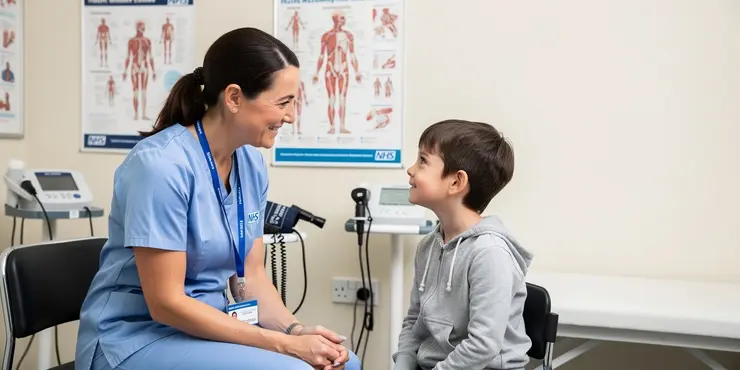
Find Help
More Items From Ergsy search
-

Is there a cure for ADHD?
Relevance: 100%
-
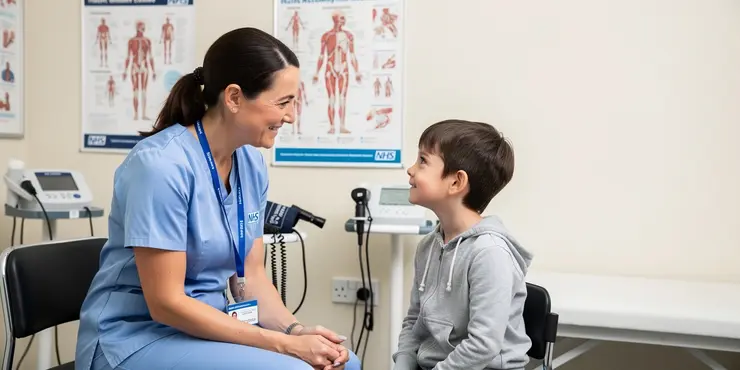
What is ADHD?
Relevance: 100%
-
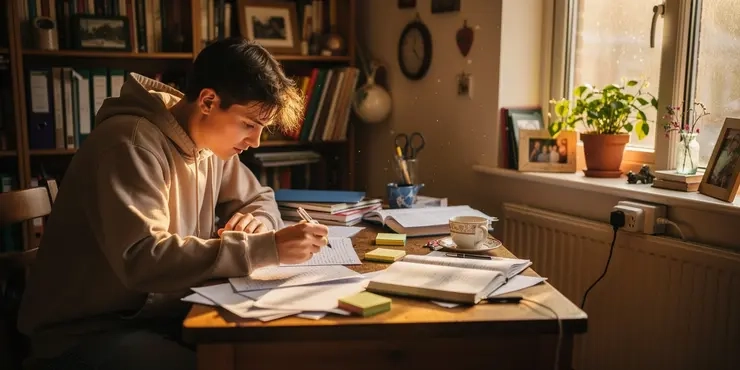
Attention deficit hyperactivity disorder (ADHD) - Living with ADHD
Relevance: 97%
-
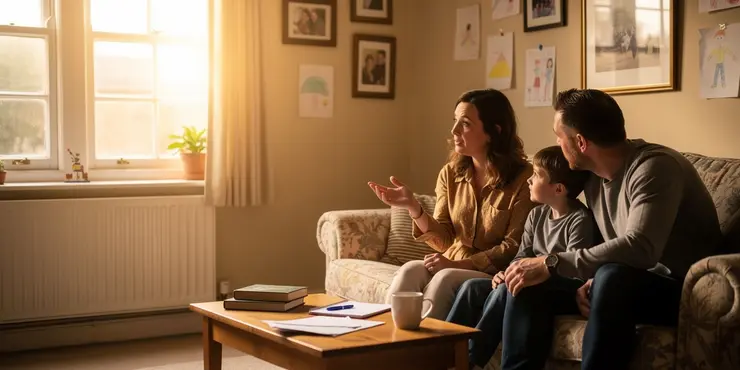
Can ADHD be inherited?
Relevance: 96%
-
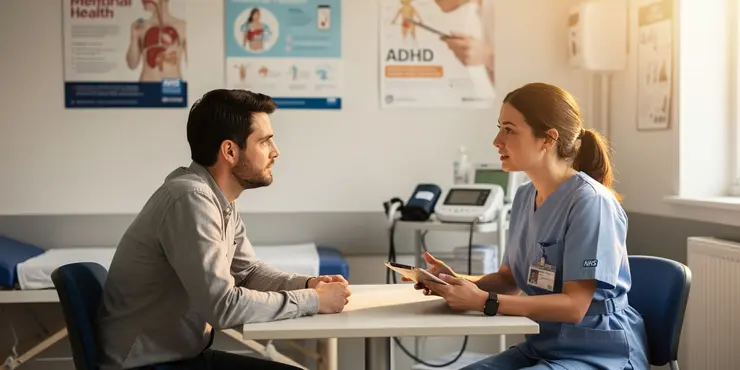
What causes ADHD?
Relevance: 95%
-
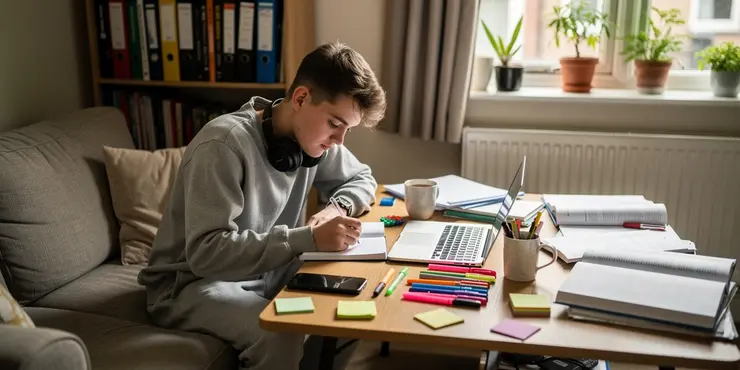
Are there different types of ADHD?
Relevance: 95%
-
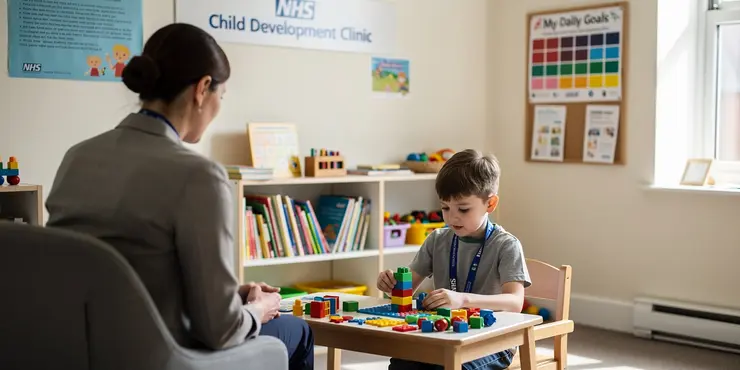
How is ADHD diagnosed?
Relevance: 94%
-
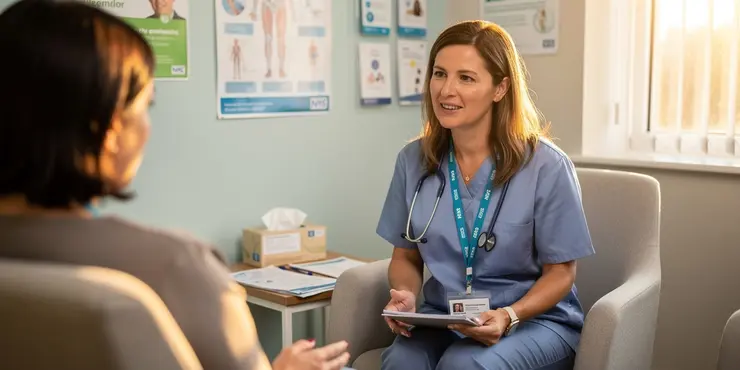
Can adults have ADHD?
Relevance: 92%
-
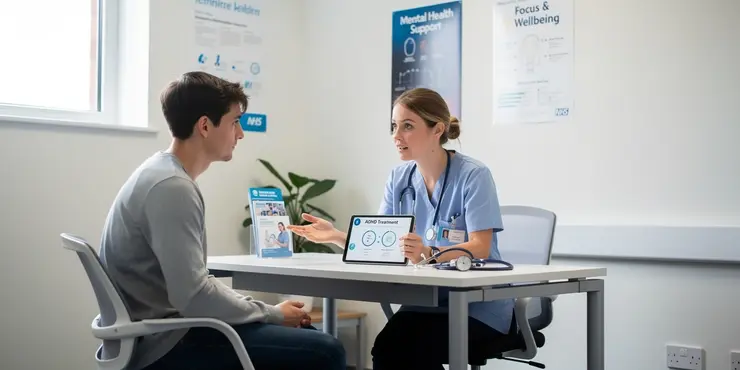
What are common treatments for ADHD?
Relevance: 91%
-

What are the main symptoms of ADHD?
Relevance: 90%
-

Is ADHD more common in boys or girls?
Relevance: 88%
-
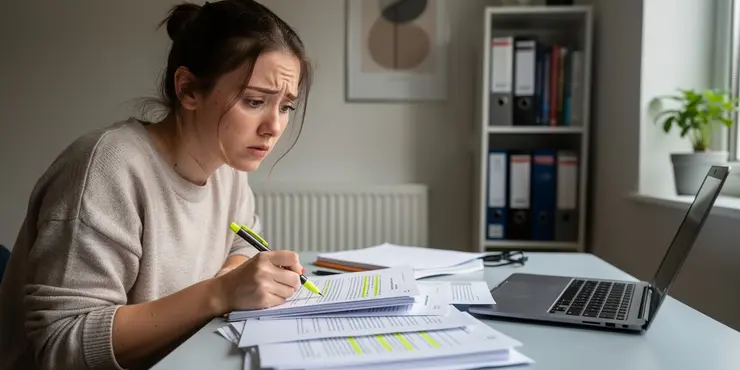
Are there any risks associated with untreated ADHD?
Relevance: 88%
-

Can therapy help individuals with ADHD?
Relevance: 88%
-

Can diet affect ADHD symptoms?
Relevance: 88%
-
How can I get tested for ADHD?
Relevance: 87%
-
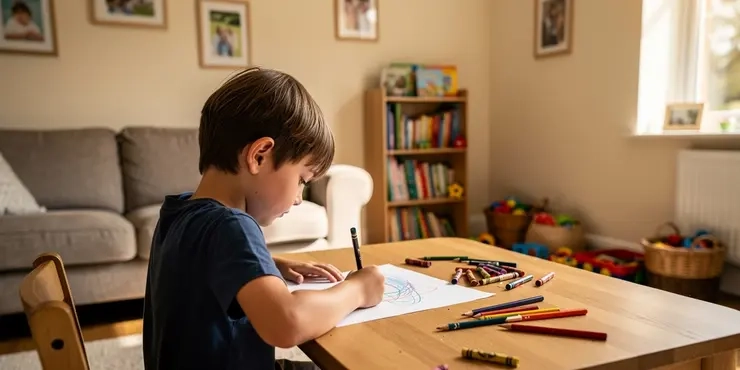
Attention deficit hyperactivity disorder (ADHD) - Introduction
Relevance: 86%
-
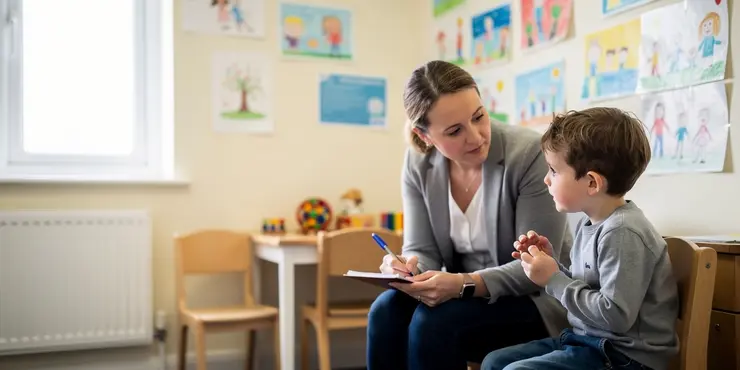
What role does the environment play in ADHD?
Relevance: 86%
-
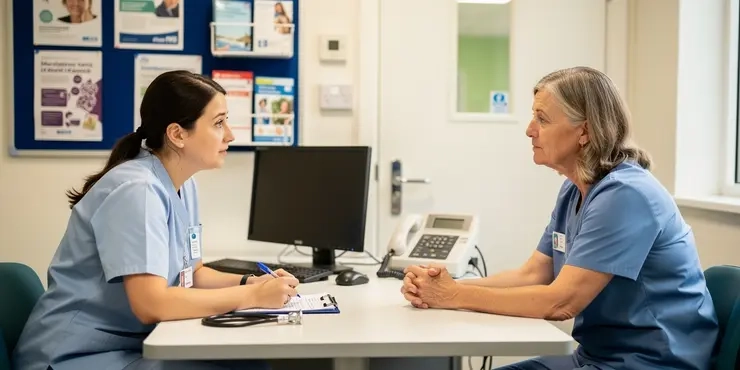
Attention deficit hyperactivity disorder (ADHD) - Diagnosis
Relevance: 85%
-

Can lifestyle changes help manage ADHD?
Relevance: 85%
-
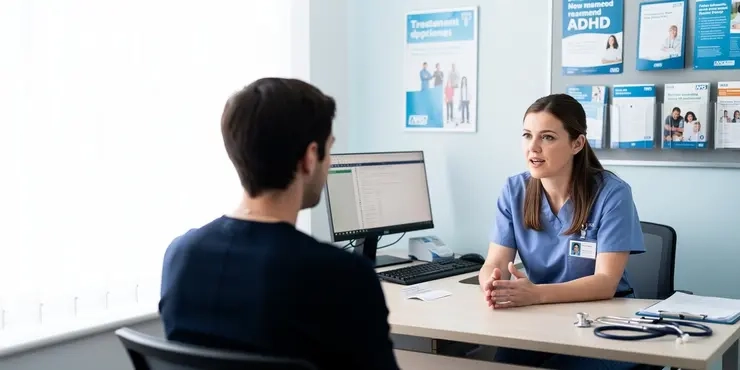
Attention deficit hyperactivity disorder (ADHD) - Treatment
Relevance: 85%
-
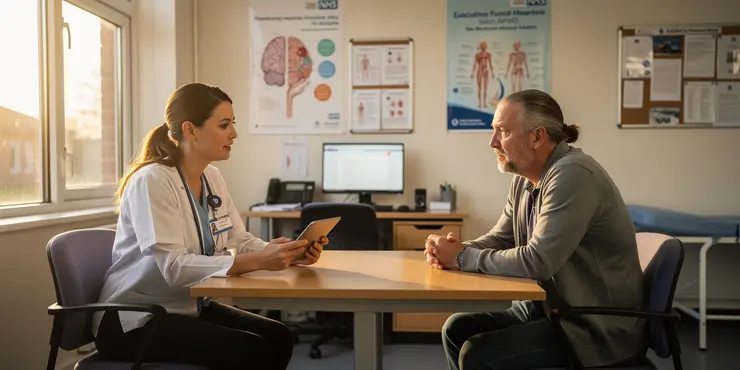
How does ADHD affect executive function?
Relevance: 85%
-
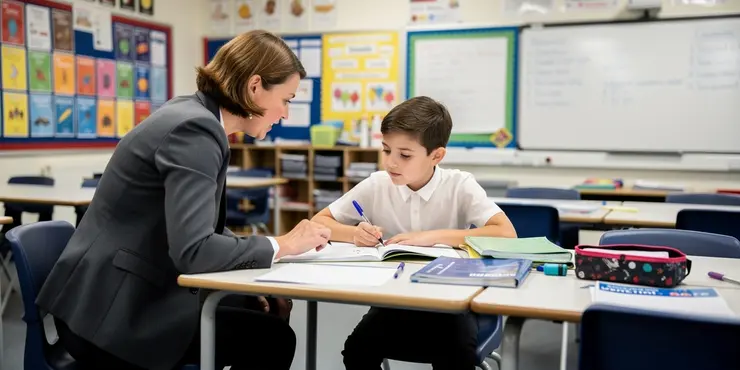
How can teachers support students with ADHD?
Relevance: 83%
-
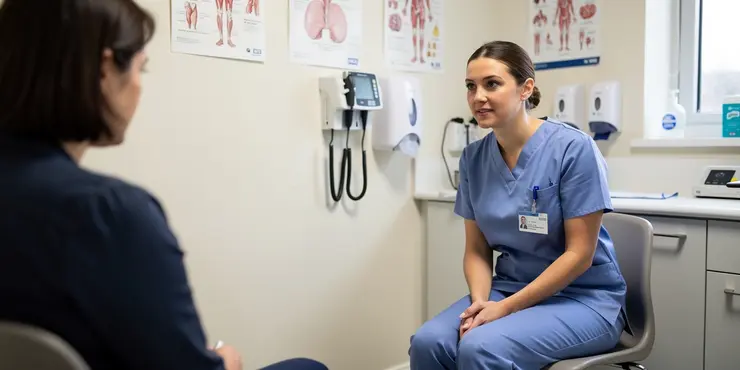
What is ADHD?
Relevance: 74%
-
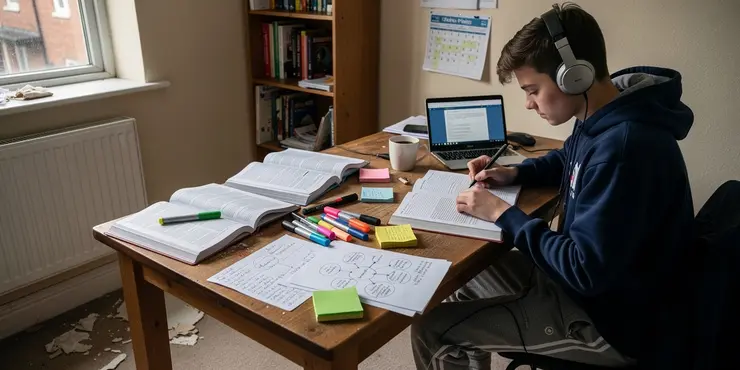
Can ADHD affect academic performance?
Relevance: 63%
-
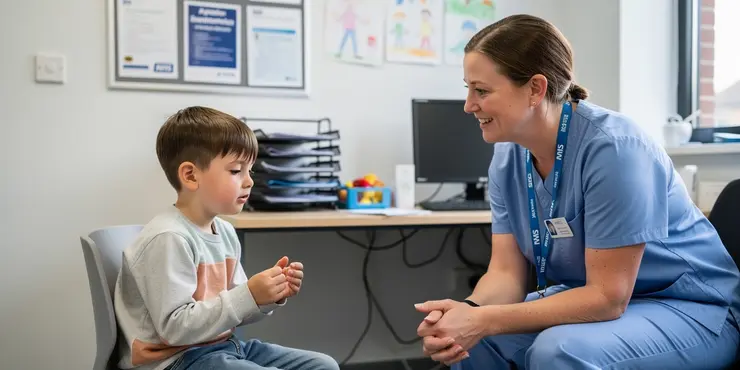
What are some common types of SEND?
Relevance: 35%
-
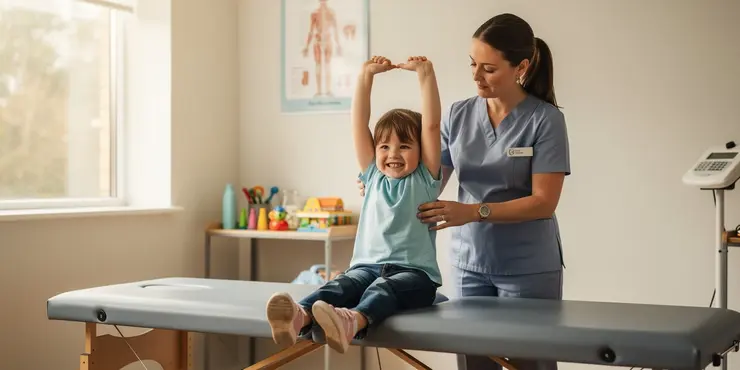
Can children benefit from chiropractic care?
Relevance: 25%
-
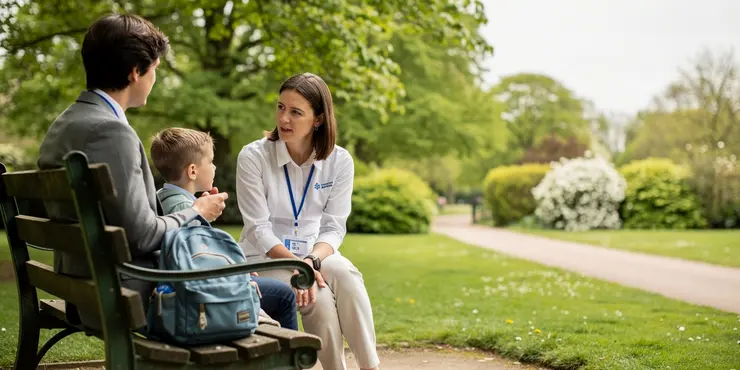
Understanding Mental Health in Children
Relevance: 23%
-
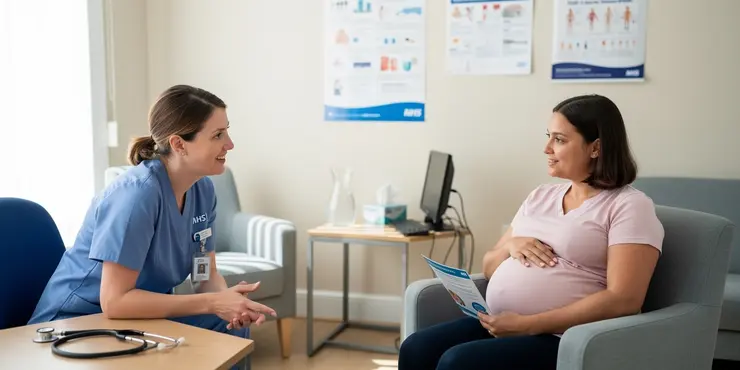
Why is there concern about paracetamol and autism?
Relevance: 22%
-
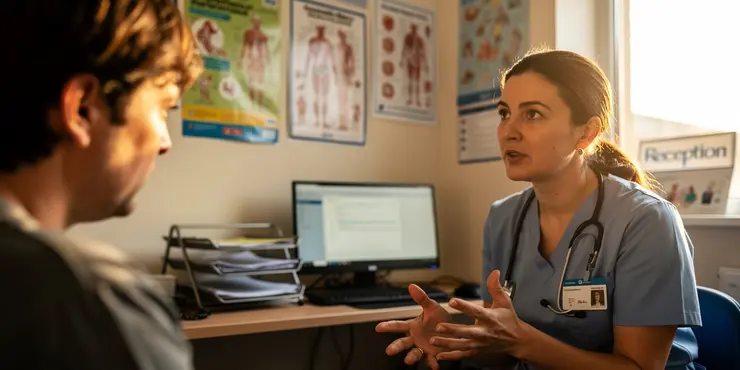
Has paracetamol been linked to other developmental issues besides autism?
Relevance: 21%
-
What is Neurodiversity?
Relevance: 19%
-
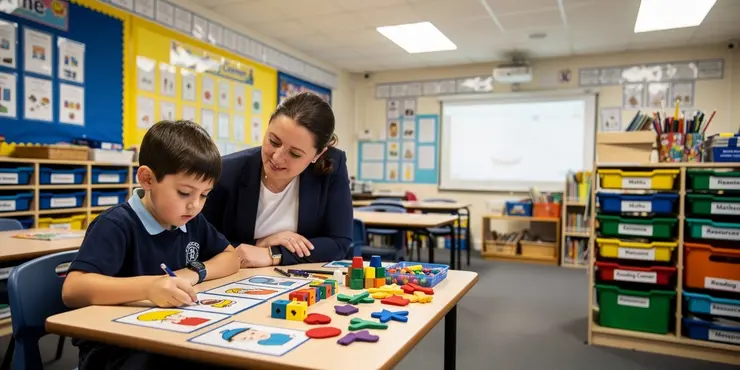
What are SEND children?
Relevance: 18%
-
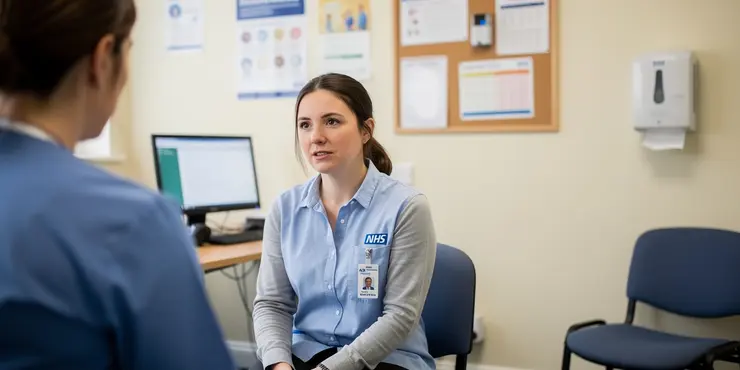
What is a learning disability?
Relevance: 18%
-
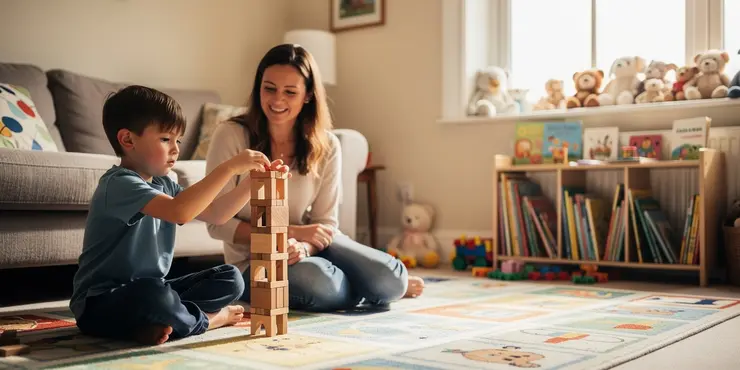
What is the autism spectrum?
Relevance: 16%
-

Dyspraxia Symptoms & Signs
Relevance: 13%
-
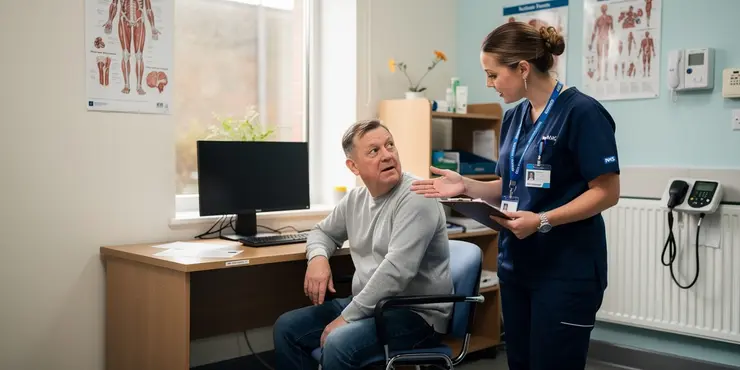
What are the potential benefits of CBD?
Relevance: 13%
-

Can Paracetamol be used in pregnant women?
Relevance: 13%
-
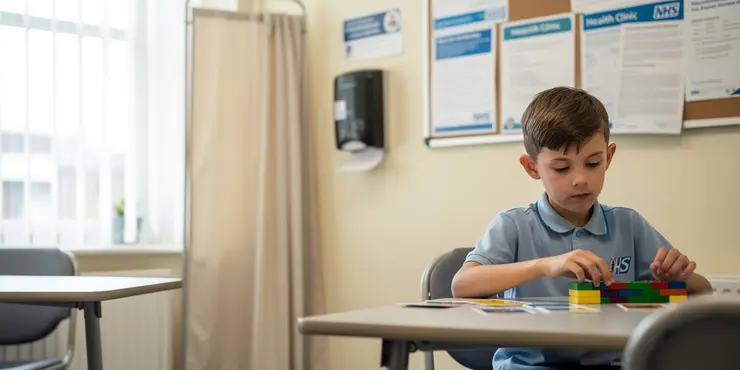
What are some common misconceptions about SEND?
Relevance: 13%
-
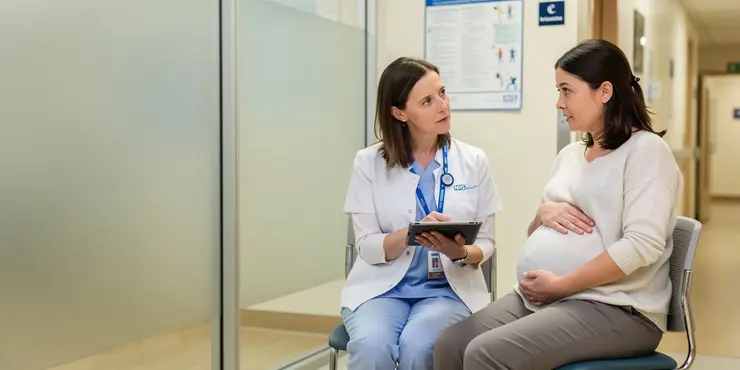
What should pregnant individuals consider when taking paracetamol?
Relevance: 13%
-
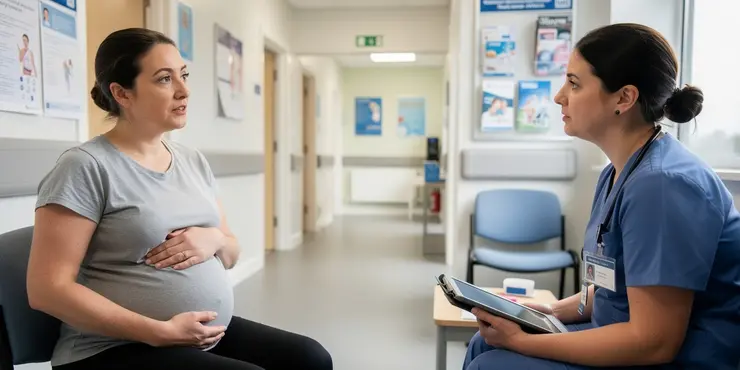
Have there been any recent changes in guidelines regarding paracetamol use and pregnancy?
Relevance: 13%
-
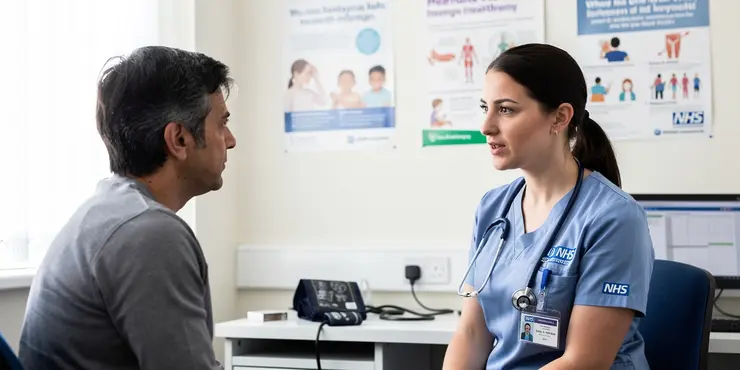
Who should avoid using caffeine pouches?
Relevance: 12%
What is ADHD?
Attention Deficit Hyperactivity Disorder (ADHD) is a neurodevelopmental disorder commonly diagnosed in childhood, but it can continue into adulthood. It is characterised by symptoms of inattention, hyperactivity, and impulsivity, which can affect a person’s ability to function in daily life.
Symptoms of ADHD
ADHD symptoms are generally divided into two main categories: inattentive symptoms and hyperactive-impulsive symptoms. Inattentive symptoms may include difficulties staying focused on tasks, frequent forgetfulness, losing things, and making careless mistakes. Hyperactive-impulsive symptoms can involve excessive fidgeting, an inability to stay seated, interrupting others, and feelings of restlessness. It is important to note that symptoms can vary widely among individuals and may change over time.
Causes of ADHD
Although the exact cause of ADHD is not fully understood, research suggests a combination of genetic, environmental, and neurological factors. Genetics play a significant role, as ADHD often runs in families. Environmental factors such as prenatal exposure to tobacco or alcohol, exposure to toxins at a young age, and premature birth may also contribute. Studies have also shown differences in brain structure and function in those with ADHD compared to individuals without the disorder.
Diagnosis of ADHD
Diagnosing ADHD typically involves a comprehensive assessment by a healthcare professional. This assessment may include interviews with the child or adult being assessed, as well as feedback from family members, teachers, or colleagues. Healthcare providers might use standardized questionnaires or checklists to aid in the diagnosis. It is crucial to rule out other conditions that might mimic ADHD symptoms, such as anxiety, depression, or learning disabilities.
Treatment and Management
While there is no cure for ADHD, treatment can help manage symptoms effectively. Treatment plans are often tailored to the individual's needs and may include a combination of medication, behavioural therapy, and educational support. Medications, such as stimulants or non-stimulants, can help improve attention and self-control in many people with ADHD. Behavioural therapy can teach strategies for organising tasks, managing time, and reducing distractibility. Educational support might involve accommodations in school settings, such as extra time for tasks or a quiet space for exams.
Living with ADHD
Living with ADHD can present challenges, but with proper support and management, individuals can lead successful and fulfilling lives. Building a strong support system that includes family, educators, and healthcare providers is essential. It is also important to address any co-occurring conditions, such as anxiety or depression, which can exacerbate ADHD symptoms. Raising awareness and understanding of ADHD can help reduce stigma and foster a supportive environment for those affected by the disorder.
What is ADHD?
ADHD stands for Attention Deficit Hyperactivity Disorder. It is a brain condition that often starts when you are a child, but it can last even when you grow up. If you have ADHD, you might find it hard to pay attention, sit still, or wait your turn. This can make it difficult to do everyday things.
Symptoms of ADHD
There are two main types of problems you might have with ADHD. The first type is not paying attention. You might forget things easily, lose things often, or make mistakes because you aren't focused. The second type is being very active and impulsive. This could mean you can't sit still, you talk out of turn, or you feel like you always have to be moving. Not everyone with ADHD has the same problems, and they might change as you get older.
Causes of ADHD
Doctors aren't sure what causes ADHD, but they think it comes from a mix of things. It often runs in families, so the way your brain works might be inherited from your parents. Other things that might play a part include your surroundings, like if your mother smoked or drank alcohol when she was pregnant, or if you were born too early. Scientists have noticed that people with ADHD have differences in how their brains look or work.
Diagnosis of ADHD
To find out if someone has ADHD, a doctor will ask lots of questions. They will talk to you and maybe your family, teachers, or other people who know you well. They might use checklists to help them decide. Doctors want to make sure your symptoms aren't caused by something else, like feeling very worried or sad, or having trouble learning.
Treatment and Management
There is no cure for ADHD, but there are ways to help manage it. Treatment is different for everyone and can include taking medicine, having therapy, and getting help at school. ADHD medicines can help people focus and control their actions better. Therapy can teach you how to plan better, manage your time, and stay on task. You might also get extra help at school, like more time to finish your work or a quiet place to take tests.
Living with ADHD
ADHD can make life tough sometimes, but with the right help, you can do well and be happy. Having people you trust, like family, teachers, and doctors, can support you. If you also have other problems like anxiety or feeling sad, it's important to treat those too. Understanding ADHD better can help everyone be more supportive and nicer to people who have it.
Frequently Asked Questions
What is ADHD?
ADHD stands for Attention-Deficit/Hyperactivity Disorder, a neurodevelopmental disorder characterized by symptoms such as inattention, hyperactivity, and impulsivity.
What are the main symptoms of ADHD?
The main symptoms of ADHD include inattention (difficulty sustaining focus, disorganization), hyperactivity (excessive movement, inability to stay still), and impulsivity (hasty actions without forethought).
How is ADHD diagnosed?
ADHD is diagnosed through a comprehensive evaluation by a health professional, which may include interviews, questionnaires, and assessment of symptoms based on criteria in the DSM-5.
What causes ADHD?
The exact cause of ADHD is unknown, but research suggests a combination of genetic, environmental, and neurological factors contribute to its development.
Can adults have ADHD?
Yes, adults can have ADHD. While it's often diagnosed in childhood, many adults live with ADHD. Symptoms can persist and affect work, relationships, and daily activities.
Is there a cure for ADHD?
There is no cure for ADHD, but it can be managed with a combination of behavioral therapy, medication, and lifestyle interventions.
What are common treatments for ADHD?
Common treatments for ADHD include stimulant medications, non-stimulant medications, behavioral therapies, and educational interventions.
Can lifestyle changes help manage ADHD?
Yes, lifestyle changes such as regular exercise, a healthy diet, adequate sleep, and stress management can help manage ADHD symptoms.
Is ADHD more common in boys or girls?
ADHD is more commonly diagnosed in boys than girls, although it's believed to be underdiagnosed in girls who may exhibit less hyperactivity.
Can ADHD affect academic performance?
Yes, ADHD can significantly affect academic performance due to difficulties with attention, task completion, and organization.
Are there different types of ADHD?
Yes, there are three types of ADHD: predominantly inattentive presentation, predominantly hyperactive-impulsive presentation, and combined presentation.
Can diet affect ADHD symptoms?
Some studies suggest that certain dietary changes may help manage symptoms, though the evidence is not definitive. A balanced diet with limited sugar and processed foods is generally recommended.
How does ADHD affect executive function?
ADHD can impair executive functions such as planning, organizing, emotional regulation, and managing time and space efficiently.
Can ADHD be inherited?
ADHD tends to run in families, indicating a genetic component. The specific genetic factors are still being researched.
Does ADHD only occur in children?
No, ADHD occurs in both children and adults. While many children experience a reduction in symptoms as they age, others continue to experience them into adulthood.
How can teachers support students with ADHD?
Teachers can support students with ADHD by providing clear instructions, using visual aids, allowing movement breaks, and creating a structured environment.
Are there any risks associated with untreated ADHD?
Untreated ADHD can lead to academic and occupational difficulties, relationship problems, and increased risk of substance abuse and mental health disorders.
How does ADHD differ from normal inattentiveness?
While everyone can be inattentive at times, ADHD involves frequent, severe, and chronic symptoms that interfere with functioning in multiple settings.
What role does the environment play in ADHD?
Environmental factors, such as prenatal exposure to toxins, premature birth, and high-stress environments, may contribute to the development of ADHD.
Can therapy help individuals with ADHD?
Yes, various forms of therapy, such as cognitive-behavioral therapy and behavioral interventions, can help individuals manage ADHD symptoms and improve daily functioning.
What is ADHD?
ADHD stands for Attention Deficit Hyperactivity Disorder. It is a condition that makes it hard to pay attention. People with ADHD may be very active and have trouble sitting still.
Here are some things that might help:
- Use a calendar to remember things.
- Take breaks when doing homework.
- Ask for help when you need it.
ADHD means Attention-Deficit/Hyperactivity Disorder. It is a brain problem. People with ADHD can have trouble paying attention. They might move a lot and do things without thinking.
What are the main signs of ADHD?
People with ADHD often have trouble paying attention and staying organized. They might move around a lot and find it hard to sit still. They can also make quick decisions without thinking them through.
How do doctors know if someone has ADHD?
Doctors talk to the person and their family.
They ask questions about what the person is good at and what is hard for them.
They might ask about the person's behavior at school and home.
Sometimes, doctors give tests to help them learn more.
Doctors also check to make sure other things aren't causing the behaviors.
Parents and teachers can help by sharing what they see.
Tools like lists or charts can help remember things.
A doctor or health expert can find out if someone has ADHD. They will talk to the person and ask questions. They will also use a list of symptoms from a book called the DSM-5 to help them decide.
Why do some people have ADHD?
ADHD means Attention Deficit Hyperactivity Disorder. It is when people have trouble sitting still, paying attention, or waiting their turn.
Here are some reasons why someone might have ADHD:
- Brain Differences: The brain might work differently.
- Family: ADHD can run in families, so if a parent has ADHD, their child might have it too.
- Environment: Things like smoking during pregnancy might increase chances of ADHD.
If someone has ADHD, it is not their fault. Support from doctors or teachers can help. Some tools, like timers or charts, can also make it easier to focus and stay calm.
We don't know exactly what causes ADHD. But scientists think it happens because of a mix of reasons. It might be because of genes that get passed down from parents, things around us in the environment, and differences in how the brain works.
Here are some tips that might help:
- Use pictures and videos to learn more.
- Break information into small steps.
- Ask someone to explain difficult parts.
Can grown-ups have ADHD?
Yes, grown-ups can have ADHD. ADHD stands for Attention Deficit Hyperactivity Disorder. It makes it hard to focus, sit still, or control impulses. Some grown-ups find out they have it later in life.
If you think you might have ADHD, it’s a good idea to talk to a doctor. They can help you understand and manage it.
Here are some ways to help:
- Use a planner to keep track of tasks and reminders.
- Take breaks to move around and relax.
- Try to create a calm and quiet place to work.
- Make lists to remember what you need to do.
Yes, grown-ups can have ADHD. Doctors usually find it in kids, but many grown-ups have it too. ADHD can make working, being with friends, and doing daily tasks harder.
Can ADHD be fixed?
No, ADHD cannot be fixed. But there are things you can do to help.
Here is what can help:
- Medicine: Medicine can help you focus and feel calmer.
- Talking to someone: Talking to a doctor or counselor can help you learn ways to manage ADHD.
- Setting a routine: Having a regular daily schedule can make things easier.
- Getting support: Family, teachers, and friends can give you support and help.
Lots of people with ADHD live happy and successful lives.
There is no cure for ADHD. But people can feel better with help. This help can be: talking to a therapist, taking medicine, and changing some daily habits.
How do doctors help people with ADHD?
Doctors have ways to help people with ADHD feel better. Here are some things they might do:
- Give special medicine to help focus better.
- Talk with a therapist who can teach ways to stay calm.
- Have special classes to learn new skills.
- Use tools like timers and planners to keep on track.
These things can make school and home easier. It's good to talk to a doctor to find what works best.
For people with ADHD, there are ways to help. These include medicines that make you feel more awake, other medicines that do not wake you up, talking to someone to help change behaviors, and help at school to learn better.
Can changes in daily habits help with ADHD?
Yes, changing daily habits can help with ADHD. ADHD stands for Attention-Deficit/Hyperactivity Disorder. It makes it hard for some people to pay attention or sit still. Here are some simple things that might help:
- Exercise: Moving your body can help you feel calmer and focus better.
- Sleep: Try to go to bed at the same time every night. Sleep helps your brain work well.
- Healthy Food: Eating fruits, vegetables, and other healthy foods can be good for your brain.
- Routine: Try to do things at the same time each day. This can make things feel easier.
Some tools and techniques can also help:
- Timers: Use a timer to remind you when to start or stop doing something.
- Checklists: Write down tasks so you remember what to do.
- Quiet Space: Find a calm place to work without distractions.
Remember, everyone is different, and what helps one person might not help another. It can be good to try different things and see what works best for you.
Yes, changing your life can help with ADHD. Try doing things like exercising regularly, eating healthy food, getting enough sleep, and managing stress.
Do more boys or girls have ADHD?
Doctors say more boys have ADHD than girls. But sometimes girls with ADHD don't get noticed because they might not be as energetic.
Does ADHD change how well you do in school?
Yes, ADHD can make it hard to do well in school. It can be tough to pay attention, finish tasks, and stay organized.
Are there different kinds of ADHD?
Yes, there are different kinds of ADHD. ADHD stands for Attention Deficit Hyperactivity Disorder. Here are the three main types:
- Inattentive Type: This type makes it hard to pay attention. People may forget things or not listen well.
- Hyperactive-Impulsive Type: This type makes people very active. They may move a lot or say things quickly without thinking.
- Combined Type: This type is a mix of both inattentive and hyperactive-impulsive symptoms.
There are ways to help with ADHD. Tools like timers or checklists can be useful. A calm place to work or play is good too. Talking to a doctor or teacher can also help.
Yes, there are three kinds of ADHD:
1. Mostly paying-attention problems.
2. Mostly being very active and acting before thinking.
3. A mix of both problems.
If you find reading hard, try using a ruler or your finger to follow the words.
Can what we eat change ADHD symptoms?
Some studies say changing what you eat might help with symptoms, but we are not sure. It is a good idea to eat a mix of foods and not too much sugar or junk food.
How does ADHD affect thinking skills?
ADHD can make it hard for people to think and plan. These skills are called thinking skills.
Here is how ADHD can affect thinking skills:
- Paying attention: People with ADHD can find it hard to focus. They might get distracted easily.
- Planning ahead: It can be tricky for them to plan tasks or activities.
- Staying organized: Keeping things tidy and in order might be a challenge.
- Remembering things: They might forget instructions or what they need to do next.
Here are some helpful tools:
- Use pictures and colors to remember things.
- Write notes or use planners to keep track of tasks.
- Set reminders or alarms to stay on task.
- Break big tasks into smaller steps.
These tools can help make tasks easier to manage for people with ADHD.
ADHD can make it hard to plan, organize, and control emotions. It can also be tough to keep track of time and space.
Can you get ADHD from your parents?
Yes, you can get ADHD from your parents. This is called being "inherited." It means ADHD can run in families.
Here are some tips to help understand:
- Read slowly and take your time.
- Ask an adult if you need help. They can explain things to you.
- Use pictures, videos, or audio books. They can make things clearer.
ADHD can be common in families. This means it might be something you are born with. Scientists are still trying to find out why this happens.
Can only kids have ADHD?
ADHD is not just for kids. Grown-ups can have it too. Try using things like pictures or videos to help understand better. Talking with someone can also help.
No, ADHD happens to kids and grown-ups. Some kids find their symptoms get better as they get older, but others still have them when they are adults.
How can teachers help students with ADHD?
Teachers can do many things to help students with ADHD. Here are some easy ways:
1. Make tasks short: Break work into little steps. This makes it easier for students to stay focused.
2. Use pictures and charts: Visual aids can help students understand instructions better.
3. Give clear instructions: Use simple words when telling students what to do. Repeat if needed.
4. Offer breaks: Let students take short breaks to move around. This helps them release extra energy.
5. Use timers: Timers can help students know how much time they have to finish a task.
6. Be patient and kind: Understand that students with ADHD may take longer to learn. Encourage and support them.
These tools can make learning easier for students with ADHD. Teachers can ask other teachers for more ideas too.
Teachers can help students with ADHD by doing a few things. They can give clear directions, use pictures to help explain, let students take quick breaks to move around, and keep things organized and calm in the classroom.
What can happen if ADHD is not treated?
ADHD is a condition that affects how a person behaves. If ADHD is not helped with treatments, it might make things harder for a person. Here are some things to think about:
- Focus: It might be hard to pay attention and finish tasks.
- Feelings: A person could feel worried or sad more often.
- School or Work: It might be difficult to do well in school or at a job.
- Friends: Making and keeping friends could be harder.
It's important to talk to a doctor who can help with ADHD.
Tools like timers, calendars, or apps can help keep track of tasks.
If ADHD is not treated, it can make school and work hard. It can also cause trouble with friends and family. People with untreated ADHD might use drugs or have other mental health problems.
What is different between ADHD and just being easily distracted?
Sometimes, everyone does not pay attention. But ADHD is different. It means not paying attention often and in a strong way. This happens a lot and makes it hard to do things in different places like at home, school, or work.
How does the world around us affect ADHD?
ADHD is a condition that makes it hard to pay attention. The world around us can make a big difference for people with ADHD. Here are some ways:
- Noise: Loud places can make it hard to focus.
- Clutter: Messy spaces can be distracting.
- Routines: Having a daily schedule can help.
- Support: Friends and family can offer help and understanding.
Try using lists to stay organized and take breaks when you need them.
Things in the environment can affect if someone has ADHD. This can include being around harmful things before birth, being born too early, or being in very stressful places.
Can talking to a therapist help people with ADHD?
Talking to a therapist is a way to get help. It can help people with ADHD feel better.
- What is ADHD? - ADHD makes it hard to sit still, focus, and listen.
- How can therapy help? - A therapist can teach people ways to focus better. They can talk about feelings and find ways to solve problems.
- Who can help? - Therapists and doctors can give advice.
- Tools that can help: - You can use reminders, lists, and calendars to stay on track.
Talking and learning these tools can make life with ADHD easier.
Yes, different kinds of talking therapy, like cognitive-behavioral therapy (CBT) and behavioral interventions, can help people with ADHD. These therapies can make it easier to handle ADHD symptoms and do better in everyday life.
Useful Links
This website offers general information and is not a substitute for professional advice.
Always seek guidance from qualified professionals.
If you have any medical concerns or need urgent help, contact a healthcare professional or emergency services immediately.
Some of this content was generated with AI assistance. We’ve done our best to keep it accurate, helpful, and human-friendly.
- Ergsy carfully checks the information in the videos we provide here.
- Videos shown by Youtube after a video has completed, have NOT been reviewed by ERGSY.
- To view, click the arrow in centre of video.
- Most of the videos you find here will have subtitles and/or closed captions available.
- You may need to turn these on, and choose your preferred language.
- Go to the video you'd like to watch.
- If closed captions (CC) are available, settings will be visible on the bottom right of the video player.
- To turn on Captions, click settings .
- To turn off Captions, click settings again.
More Items From Ergsy search
-

Is there a cure for ADHD?
Relevance: 100%
-

What is ADHD?
Relevance: 100%
-

Attention deficit hyperactivity disorder (ADHD) - Living with ADHD
Relevance: 97%
-

Can ADHD be inherited?
Relevance: 96%
-

What causes ADHD?
Relevance: 95%
-

Are there different types of ADHD?
Relevance: 95%
-

How is ADHD diagnosed?
Relevance: 94%
-

Can adults have ADHD?
Relevance: 92%
-

What are common treatments for ADHD?
Relevance: 91%
-

What are the main symptoms of ADHD?
Relevance: 90%
-

Is ADHD more common in boys or girls?
Relevance: 88%
-

Are there any risks associated with untreated ADHD?
Relevance: 88%
-

Can therapy help individuals with ADHD?
Relevance: 88%
-

Can diet affect ADHD symptoms?
Relevance: 88%
-
How can I get tested for ADHD?
Relevance: 87%
-

Attention deficit hyperactivity disorder (ADHD) - Introduction
Relevance: 86%
-

What role does the environment play in ADHD?
Relevance: 86%
-

Attention deficit hyperactivity disorder (ADHD) - Diagnosis
Relevance: 85%
-

Can lifestyle changes help manage ADHD?
Relevance: 85%
-

Attention deficit hyperactivity disorder (ADHD) - Treatment
Relevance: 85%
-

How does ADHD affect executive function?
Relevance: 85%
-

How can teachers support students with ADHD?
Relevance: 83%
-

What is ADHD?
Relevance: 74%
-

Can ADHD affect academic performance?
Relevance: 63%
-

What are some common types of SEND?
Relevance: 35%
-

Can children benefit from chiropractic care?
Relevance: 25%
-

Understanding Mental Health in Children
Relevance: 23%
-

Why is there concern about paracetamol and autism?
Relevance: 22%
-

Has paracetamol been linked to other developmental issues besides autism?
Relevance: 21%
-
What is Neurodiversity?
Relevance: 19%
-

What are SEND children?
Relevance: 18%
-

What is a learning disability?
Relevance: 18%
-

What is the autism spectrum?
Relevance: 16%
-

Dyspraxia Symptoms & Signs
Relevance: 13%
-

What are the potential benefits of CBD?
Relevance: 13%
-

Can Paracetamol be used in pregnant women?
Relevance: 13%
-

What are some common misconceptions about SEND?
Relevance: 13%
-

What should pregnant individuals consider when taking paracetamol?
Relevance: 13%
-

Have there been any recent changes in guidelines regarding paracetamol use and pregnancy?
Relevance: 13%
-

Who should avoid using caffeine pouches?
Relevance: 12%


